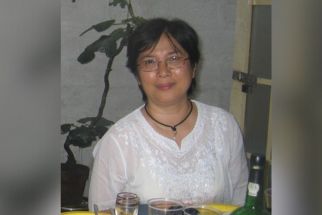New US book charts roadmap to peace in Mindanao
June 20, 2003 | 12:00am
WASHINGTON — An enduring solution to the secessionist rebellion in Mindanao is difficult to achieve because Christian settlers and Muslim inhabitants of the region see the issue from differing historical perspectives, according to a new book distributed in Washington.
"The Road to Peace and Reconciliation: A Muslim Perspective on the Mindanao Conflict" is the culmination of a year-long research project to analyze the ethnic conflict in Mindanao, at a time of increased US interest in the Philippines following President Arroyo’s recent state visit and the kidnapping by Abu Sayyaf rebels of American missionary couple Martin and Gracia Burnham.
Mrs. Burnham was rescued after 377 days in captivity in June 2002, but her husband and another captive, Filipino nurse Edibora Yap, were killed during a bloody rescue by government soldiers.
"There is a strong interest in the Philippines because of 9/11 (a reference to the Sept. 11, 2001 terror attacks in New York and Washington) and the Abu Sayyaf," said Mitzi Pickard of the Philippine American Foundation for Charities, who is promoting the book.
The book, which goes on sale here on Thursday for $20, is a compilation of research papers by Muslim political and religious leaders, scholars and former rebels.
It was edited by Amina Rasul, a research fellow of the Asian Institute of Management Policy Center who was presidential advisor on youth affairs during the Ramos administration.
The authors sought to analyze the conflict in Mindanao from the point of view of the affected Muslim communities and offered proposals to help resolve instability and combat poverty in the region while balancing the political demands of secular and religious communities.
The book comes out at an opportune time as the Philippine government and the Moro Islamic Liberation Front (MILF) separatist guerrillas are accusing each other of insincerity in ending the decades-long separatist rebellion.
Following a recent weeklong tour of Mindanao, Mrs. Arroyo said the MILF "must shed off temporizing gestures and take a bold step forward or suffer a continuing slide into irrelevance or obsolescence."
Mindanao historian Samuel K. Tan said both sides are looking at the issue from differing historical perspectives. They seem unable to agree on whether "historical imperatives" or "contemporary realities" which should be the basis for solutions to nagging political, economic, social and cultural problems of the region.
Tan said those who follow the contemporary approach believe that to go back to history to redress grievances is to make the future of Mindanao hostage to a past that has inevitably been altered through centuries of change and transformation.
To Muslims, the recovery of their ancestral land or ancient political power and rights is at best an academic or theoretical issue.
Those who follow the "historical imperative" espouse an independent Islamic state to recover economic and political power and resources lost to the colonial powers and subsequently to their Filipino heirs.
Parouk Hussein, governor of the Autonomous Region in Muslim Mindanao (ARMM), said the demand by the people of Mindanao for independence cannot be properly understood without an understanding of the Islamic era that began in 1310, two centuries before Spanish colonization through the efforts of Arab traders, travelers and Muslim missionaries.
Former senator Santanina Rasul called for an overhaul of the education system to try to make people unlearn the distrust, anger and hatred of the past.
"We must teach our people that history and the making of our nation did not begin when Magellan landed in Limasawa island," she said.
One of the main recommendations in the book is the holding of a referendum in Mindanao, involving only Muslims, to determine if they want independence, greater and more meaningful autonomy or federalism.
In a preface to the book published in Makati this year, Amina Rasul said the underlying theme of the writings is that Muslims must be allowed to live according to their beliefs and principles.
"The impact of this concern leads to the controversial proposal that has been gaining more support: self-rule through true autonomy," she said.
If an independent Islamic state is unattainable, then perhaps the road to peace and reconciliation is through federalism, she said.
However, the book does not attempt to enter into the deliberations on a federal form of government.
In a foreword to the book, former President Fidel Ramos said a refusal to recognize Mindanao, not as a mere appendage of Luzon and Visayas, but as a land that historically had a thriving civilization with distinct political, social, and religious structures is the root cause of the ethnic conflict in Mindanao.
"The Road to Peace and Reconciliation: A Muslim Perspective on the Mindanao Conflict" is the culmination of a year-long research project to analyze the ethnic conflict in Mindanao, at a time of increased US interest in the Philippines following President Arroyo’s recent state visit and the kidnapping by Abu Sayyaf rebels of American missionary couple Martin and Gracia Burnham.
Mrs. Burnham was rescued after 377 days in captivity in June 2002, but her husband and another captive, Filipino nurse Edibora Yap, were killed during a bloody rescue by government soldiers.
"There is a strong interest in the Philippines because of 9/11 (a reference to the Sept. 11, 2001 terror attacks in New York and Washington) and the Abu Sayyaf," said Mitzi Pickard of the Philippine American Foundation for Charities, who is promoting the book.
The book, which goes on sale here on Thursday for $20, is a compilation of research papers by Muslim political and religious leaders, scholars and former rebels.
It was edited by Amina Rasul, a research fellow of the Asian Institute of Management Policy Center who was presidential advisor on youth affairs during the Ramos administration.
The authors sought to analyze the conflict in Mindanao from the point of view of the affected Muslim communities and offered proposals to help resolve instability and combat poverty in the region while balancing the political demands of secular and religious communities.
The book comes out at an opportune time as the Philippine government and the Moro Islamic Liberation Front (MILF) separatist guerrillas are accusing each other of insincerity in ending the decades-long separatist rebellion.
Following a recent weeklong tour of Mindanao, Mrs. Arroyo said the MILF "must shed off temporizing gestures and take a bold step forward or suffer a continuing slide into irrelevance or obsolescence."
Mindanao historian Samuel K. Tan said both sides are looking at the issue from differing historical perspectives. They seem unable to agree on whether "historical imperatives" or "contemporary realities" which should be the basis for solutions to nagging political, economic, social and cultural problems of the region.
Tan said those who follow the contemporary approach believe that to go back to history to redress grievances is to make the future of Mindanao hostage to a past that has inevitably been altered through centuries of change and transformation.
To Muslims, the recovery of their ancestral land or ancient political power and rights is at best an academic or theoretical issue.
Those who follow the "historical imperative" espouse an independent Islamic state to recover economic and political power and resources lost to the colonial powers and subsequently to their Filipino heirs.
Parouk Hussein, governor of the Autonomous Region in Muslim Mindanao (ARMM), said the demand by the people of Mindanao for independence cannot be properly understood without an understanding of the Islamic era that began in 1310, two centuries before Spanish colonization through the efforts of Arab traders, travelers and Muslim missionaries.
Former senator Santanina Rasul called for an overhaul of the education system to try to make people unlearn the distrust, anger and hatred of the past.
"We must teach our people that history and the making of our nation did not begin when Magellan landed in Limasawa island," she said.
One of the main recommendations in the book is the holding of a referendum in Mindanao, involving only Muslims, to determine if they want independence, greater and more meaningful autonomy or federalism.
In a preface to the book published in Makati this year, Amina Rasul said the underlying theme of the writings is that Muslims must be allowed to live according to their beliefs and principles.
"The impact of this concern leads to the controversial proposal that has been gaining more support: self-rule through true autonomy," she said.
If an independent Islamic state is unattainable, then perhaps the road to peace and reconciliation is through federalism, she said.
However, the book does not attempt to enter into the deliberations on a federal form of government.
In a foreword to the book, former President Fidel Ramos said a refusal to recognize Mindanao, not as a mere appendage of Luzon and Visayas, but as a land that historically had a thriving civilization with distinct political, social, and religious structures is the root cause of the ethnic conflict in Mindanao.
BrandSpace Articles
<
>
- Latest
- Trending
Trending
Latest
Trending
Latest
Recommended

























